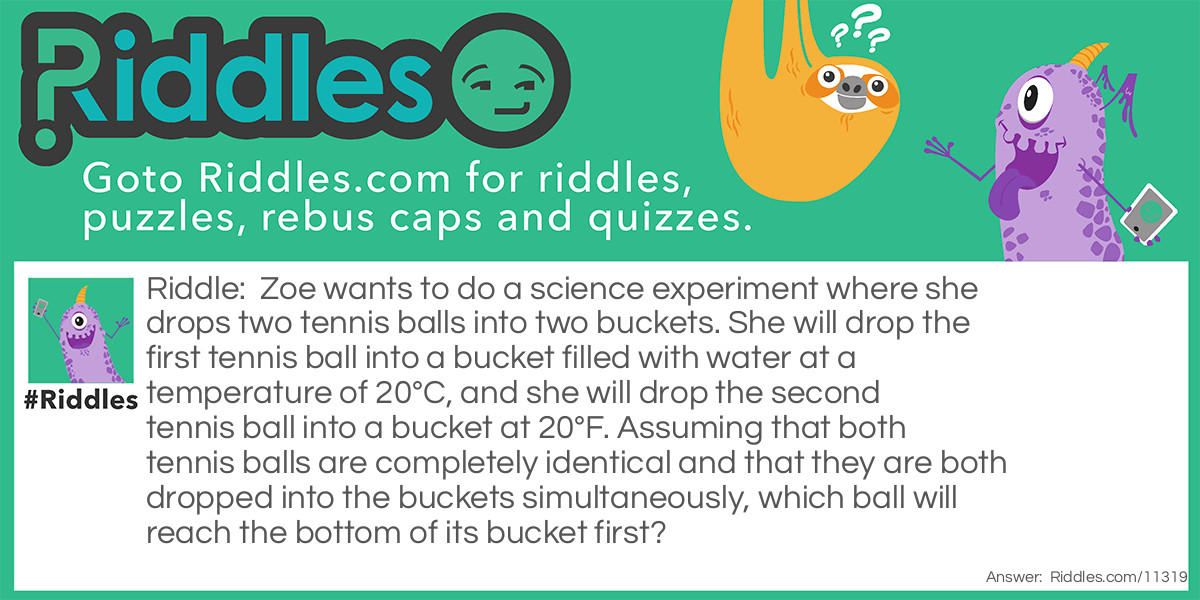A Science Experiment With Buckets
Riddle: Zoe wants to do a science experiment where she drops two tennis balls into two buckets. She will drop the first tennis ball into a bucket filled with water at a temperature of 20°C, and she will drop the second tennis ball into a bucket at 20°F. Assuming that both tennis balls are completely identical and that they are both dropped into the buckets simultaneously, which ball will reach the bottom of its bucket first?
Answer: The tennis ball dropped into the second bucket will reach the bottom first. The water in the first bucket will slow down the first tennis ball, and thus, it will take longer for that ball to reach the bottom of the bucket. Did you think the "water" in the second bucket had to be frozen at 20°F? Well, I didn't say that there was water in the second bucket–the bucket ITSELF was at 20°F. Therefore, there is no water or ice to slow the first tennis ball down.
Source: https://riddles.com/11319

